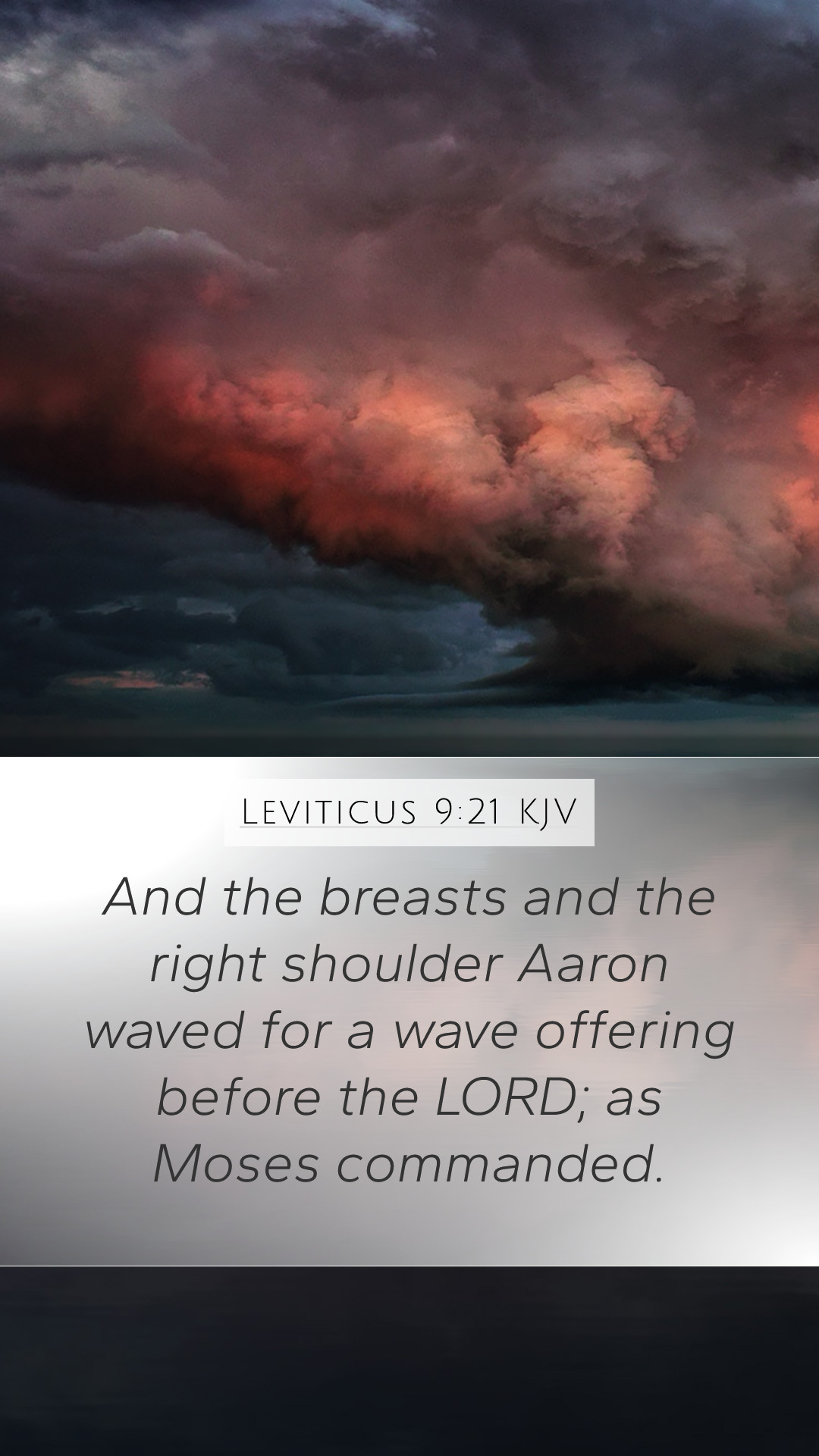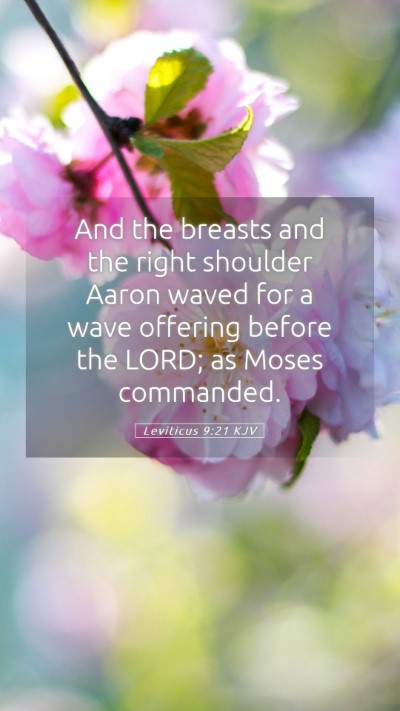Bible Verse Meaning: Leviticus 9:21
Leviticus 9:21 states, "And the breasts and the right shoulder Aaron waved for a wave offering before the Lord; as Moses commanded." This verse encapsulates a critical moment in the establishment of the priestly role and its significance in worship; various commentaries provide detailed insights into its implications and meanings.
Understanding Scripture: A Look at Leviticus 9:21
This verse highlights the act of waving the offerings, which was a customary practice in the sacrificial system. Here is an overview of its interpretation based on renowned public domain commentaries:
-
Matthew Henry's Commentary
Matthew Henry notes that the wave offering signifies the dedication of the offerings to God, indicating that the sacrifices were presented before Him in a ceremonial act of worship. This act underlines the importance of human hands in offering, representing man's role in acknowledging God through sacrificial acts.
-
Albert Barnes' Notes
According to Barnes, this verse illustrates the process of Aaron performing his priestly duties, emphasizing obedience to God's instructions as delivered through Moses. The mention of the right shoulder and breasts carried symbolic meaning, serving as parts of the offering that were particularly holy, intended for God. This action manifolds how essential it is to follow divine commands in all matters of worship.
-
Adam Clarke's Bible Commentary
Adam Clarke expands on the significance of the wave offering. He explains that the act of waving represents a special acknowledgment of God's provision. The wave offering, which includes specific parts of the animal sacrifice, communicates gratitude and reverence towards God. Clarke also discusses the transition of sacrifices from the Israelites' common practice to a more structured aspect distinctly illustrating the relationship between God and His priesthood.
Significance of Leviticus 9:21
The primary significance of Leviticus 9:21 lies in its representation of holiness, obedience, and the established order of worship in ancient Israel. Some key points of understanding applicable to this verse are:
- Holiness: The act of offering and waving signifies how sacred these rituals are, signifying God's acceptance of the sacrifices.
- Obedience to Divine Law: It demonstrates Aaron's compliance with Moses' commands and God's laws, reflecting the importance of adherence to divine instruction.
- Connection Between Creator and Creation: The waving action symbolizes the act of giving back to God, highlighting the reciprocal relationship between the people and their God.
Cross-References Related to Leviticus 9:21
- Exodus 29:24-26: Details the parts of the sacrifice designated for the Lord.
- Leviticus 7:30-34: Refers to the wave offering and its significance as part of the sacrificial system.
- Deuteronomy 18:3-5: Addresses the priestly portions of offerings as part of the Law.
Application of the Verse in Modern Context
Understanding Leviticus 9:21 can be beneficial in various areas of Bible study:
- Bible Study Groups: This verse serves as a wonderful focal point for discussions on priestly duties and the concept of sacrifice in both the Old and New Testaments.
- Online Bible Study: Many resources available online elaborate on the significance of Old Testament sacrifices and their symbolism, allowing for deeper exploration.
- Bible Study Guides: Incorporating verses like Leviticus 9:21 in study plans can illuminate the significance of ritual in worship, bridging the gap to contemporary faith practices.
Conclusion
In summary, Leviticus 9:21 offers rich insights into biblical worship practices. Its study reveals not only the procedural elements of sacrificial offerings but also deeper theological implications about holiness, obedience, and the relationship between God and His people. Through understanding this verse, one can further grasp the overarching narrative and intent of the scriptural teachings on sacrifice and worship, enriching their overall Bible verse commentary and Biblical exegesis.


